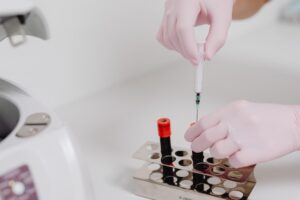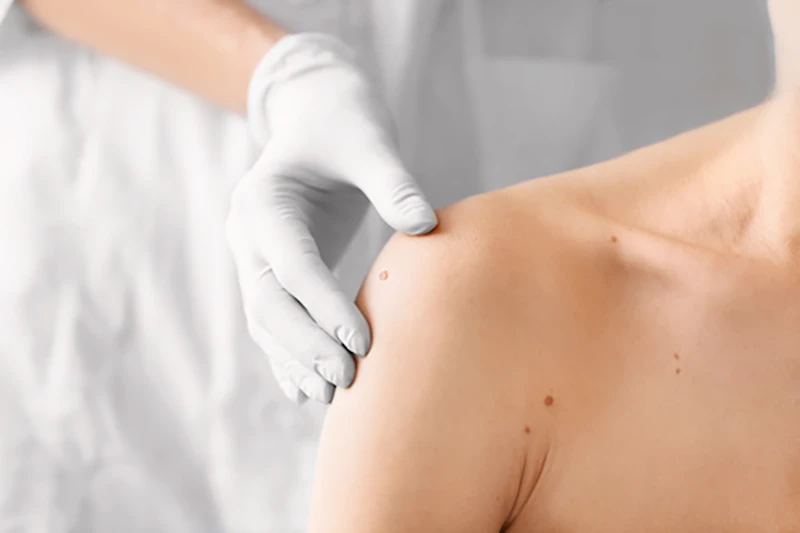Mast cell disorders are a group of rare conditions that affect the mast cells in the body. Mast cells are a type of white blood cell that play a crucial role in the immune system. These cells release substances such as histamine and other chemicals in response to an allergic reaction or inflammation.
There are several types of mast cell disorders, including mastocytosis and mast cell activation syndrome (MCAS). Mastocytosis is characterized by an abnormal increase in mast cells in various tissues, such as the skin, bone marrow, and internal organs. On the other hand, MCAS involves the activation of mast cells without an increase in their number.
Symptoms of Mast Cell Disorders
Symptoms of mast cell disorders can vary widely and may include skin rashes, itching, flushing, abdominal pain, diarrhea, and difficulty breathing. The severity of symptoms can also vary, ranging from mild to life-threatening.
- Allergies and sensitivities: Food allergies; reactions to medicines, perfumes, or certain odors or scents; allergy-like symptoms; severe reactions to insect bites or stings.
- Cardiovascular: Chest pain, fainting or near fainting, heart palpitations, rapid heartbeat, swelling.
- Dermatologic: Flushing with or without sweating, hair loss, hives (red, itchy bumps), itching, poor healing (for example, a cut that takes forever to heal), rashes.
- Eyes, nose, head, throat, mouth, neck, ears: Eye irritation, dryness, gritty, or burning; ringing in the ears; significant dental enamel loss or cavities; sinusitis; swollen glands.
- Gastrointestinal: Abdominal pain, acid reflux, change of bowel habits, difficulty swallowing, heartburn, nausea, diarrhea.
- General: Exercise intolerance, fatigue, fevers.
- Hematological: Easy bruising or bleeding, frequent or odd infections, swollen lymph nodes.
- Metabolic: Suddenly feeling cold or hot, weight gain or problems losing weight, unexplained weight loss.
- Musculoskeletal: Joint or muscle pain.
- Neurologic: Anxiety, depression, dizziness, numbing or tingling, restless leg syndrome, trouble thinking (brain fog), panic attacks.
- Respiratory: Asthma, chronic cough, shortness of breath, wheezing.
- Urinary and pelvic: Frequent urination, the sudden need to urinate, pelvic pain.
Diagnosis and Treatment of Mast Cell Disorders
 Mast cell activation disorders are often misdiagnosed because people with it typically seek relief only for specific symptoms. When symptoms are treated individually, it may relieve some discomfort, but it fails to address the underlying causes. An accurate diagnosis of mast cell disorders typically involves a combination of medical history, physical examination, and specialized tests, such as blood and urine tests and skin biopsies.
Mast cell activation disorders are often misdiagnosed because people with it typically seek relief only for specific symptoms. When symptoms are treated individually, it may relieve some discomfort, but it fails to address the underlying causes. An accurate diagnosis of mast cell disorders typically involves a combination of medical history, physical examination, and specialized tests, such as blood and urine tests and skin biopsies.
Our physicians have a great deal of experience treating mast cell disorders. We test for elevated levels of immune system mediators to find out which mediator levels are elevated and why. Ultimately, we identify the condition that’s causing the elevated levels and rule out other possibilities. To further pin down a diagnosis, we order lab tests to check the blood and urine for high levels of immune system mediators and other markers of MCAS, such as Prostaglandin D2, Chromogranin A, N-Methylhistamine, and Leukotriene E4.
 Functional and integrative medicine offers a range of treatments for mast cell disorders. One approach is identifying and addressing the underlying triggers that activate mast cells. This may include medications to control allergic reactions, stabilizes mast cells, and block the release of histamine, such as antihistamines or mast cell stabilizers.
Functional and integrative medicine offers a range of treatments for mast cell disorders. One approach is identifying and addressing the underlying triggers that activate mast cells. This may include medications to control allergic reactions, stabilizes mast cells, and block the release of histamine, such as antihistamines or mast cell stabilizers.
Lifestyle modifications such as avoiding triggers and wearing protective clothing may also be recommended. Treatment may involve dietary changes, such as avoiding certain foods or allergens. Additionally, IV therapy to reduce inflammation and supplements like quercetin and vitamin C can help stabilize mast cells and reduce symptoms.
Another treatment option is to use medications that block histamine release, such as antihistamines or mast cell stabilizers. Finally, stress management techniques like mind-body, meditation, or yoga can also be beneficial in managing mast cell disorders. A comprehensive approach to treating mast cell disorders will address the cause, the triggers, and the symptoms.
Lifestyle Modifications for Mast Cell Disorders
Lifestyle modifications for mast cell disorders involve changing daily habits and routines to help manage symptoms and reduce triggers. These modifications include avoiding known triggers such as certain foods, medications, and environmental factors. Maintaining a healthy lifestyle by eating a balanced diet, exercising regularly, and getting enough restful sleep is also essential. Additionally, stress management techniques such as relaxation exercises and mindfulness can be beneficial in reducing symptom flare-ups.
Overall, lifestyle modifications play a crucial role in managing mast cell disorders and improving quality of life, including:
- Be aware and avoid foods high in histamines, such as leftover foods, alcohol, cured meats, canned seafood, pickled foods, and preservatives.
- Consume a whole foods diet using fresh foods.
- Keep a food journal to determine which foods cause a reaction and which are safe to eat.
- Stay cool. Extreme heat can trigger a histamine reaction.
- Inspect your home for mold as an underlying cause of mast cell disorders.
- Review your medications with all your physicians to determine if any may be causing a reaction.
- Report any existing infections to your doctor so that they can test for pathogens.
- Only use natural cleaners to reduce your exposure to toxins.
- Maintain a daily routine of mind-body techniques, rest and sleep, and healthy eating to reduce physician and mental stress.
Contact our clinic if you are experiencing symptoms similar to mast cell disorders and live in Orange County or Los Angeles. We will review the medical necessity and your insurance to see if you qualify for care at our clinic.







